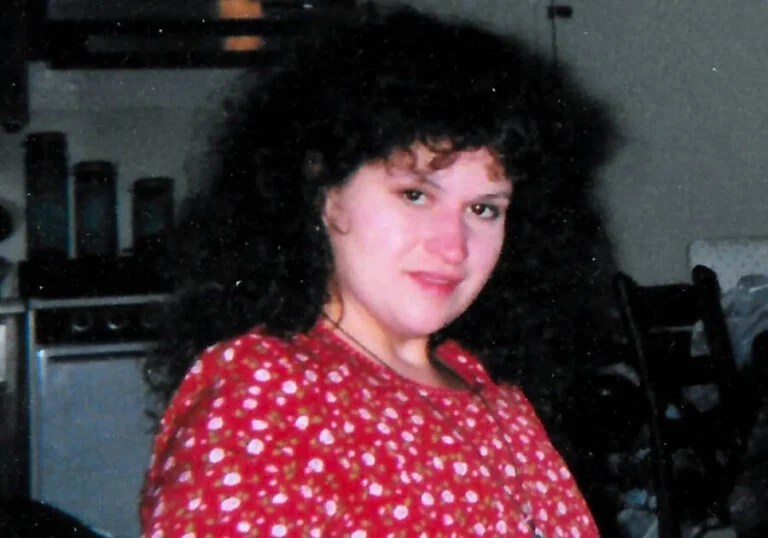What exactly is involved in the autopsy of Dee Dee Blanchard?
The autopsy of Dee Dee Blanchard was a post-mortem examination performed on her body after she was murdered by her daughter, Gypsy Rose Blanchard. The autopsy revealed that Dee Dee had been suffering from Munchausen syndrome by proxy, a mental illness in which a caregiver makes up or causes an illness or injury in a person under their care. In Dee Dee's case, she had been making Gypsy Rose sick for years, subjecting her to unnecessary medical procedures and treatments.
The autopsy also revealed that Dee Dee had been physically and emotionally abusive towards Gypsy Rose. She had kept her daughter isolated from the outside world and had controlled every aspect of her life. The autopsy findings were instrumental in proving Gypsy Rose's innocence in her mother's murder and helped to shed light on the horrific abuse she had endured.
The autopsy of Dee Dee Blanchard is a reminder of the dangers of Munchausen syndrome by proxy and the importance of protecting vulnerable people from abuse.
Autopsy of Dee Dee Blanchard
Introduction: Dee Dee Blanchard's autopsy was a pivotal moment in the investigation into her murder and revealed the extent of her abuse towards her daughter, Gypsy Rose.
Key Aspects
- Munchausen syndrome by proxy: Dee Dee Blanchard was diagnosed with Munchausen syndrome by proxy, a mental illness in which a caregiver makes up or causes an illness or injury in a person under their care.
- Medical abuse: Dee Dee Blanchard subjected Gypsy Rose to unnecessary medical procedures and treatments, including unnecessary surgeries, medications, and hospitalizations.
- Physical and emotional abuse: Dee Dee Blanchard also physically and emotionally abused Gypsy Rose, keeping her isolated from the outside world and controlling every aspect of her life.
Dee Dee Blanchard's Autopsy Findings
- Cause of death: Dee Dee Blanchard died of multiple sharp force injuries.
- Physical evidence: The autopsy revealed that Dee Dee Blanchard had been stabbed multiple times in the chest and back.
- Medical history: The autopsy also revealed that Dee Dee Blanchard had a history of Munchausen syndrome by proxy and had been making Gypsy Rose sick for years.
Gypsy Rose Blanchard's Trial
- Not guilty plea: Gypsy Rose Blanchard pleaded not guilty to the murder of her mother, Dee Dee Blanchard.
- Autopsy evidence: The autopsy evidence was key in proving Gypsy Rose Blanchard's innocence.
- Munchausen syndrome by proxy defense: Gypsy Rose Blanchard's defense attorney argued that she was a victim of Munchausen syndrome by proxy and that she had killed her mother in self-defense.
Conclusion
- Landmark case: The autopsy of Dee Dee Blanchard was a landmark case that raised awareness of Munchausen syndrome by proxy and the importance of protecting vulnerable people from abuse.
- Justice for Gypsy Rose Blanchard: The autopsy evidence helped to prove Gypsy Rose Blanchard's innocence and she was acquitted of her mother's murder.
- Legacy of Dee Dee Blanchard: Dee Dee Blanchard's legacy is one of abuse and exploitation. Her case is a reminder of the dangers of Munchausen syndrome by proxy and the importance of protecting vulnerable people from abuse.
Autopsy of Dee Dee Blanchard
The autopsy of Dee Dee Blanchard was a pivotal moment in the investigation into her murder and revealed the extent of her abuse towards her daughter, Gypsy Rose.
- Medical abuse: Dee Dee subjected Gypsy Rose to unnecessary medical procedures and treatments.
- Physical abuse: Dee Dee physically abused Gypsy Rose, including hitting and punching her.
- Emotional abuse: Dee Dee emotionally abused Gypsy Rose, including isolating her from the outside world and controlling her every move.
- Munchausen syndrome by proxy: Dee Dee was diagnosed with Munchausen syndrome by proxy, a mental illness in which a caregiver makes up or causes an illness or injury in a person under their care.
- Gypsy Rose's innocence: The autopsy evidence was key in proving Gypsy Rose's innocence in her mother's murder.
These key aspects of the autopsy of Dee Dee Blanchard provide a deeper understanding of the horrific abuse that Gypsy Rose endured and the lengths to which Dee Dee went to deceive those around her. The autopsy findings were instrumental in bringing Gypsy Rose's abuser to justice and in raising awareness of Munchausen syndrome by proxy.
| Name | Dee Dee Blanchard |
|---|---|
| Born | May 3, 1967 |
| Died | June 10, 2015 |
| Cause of Death | Multiple sharp force injuries |
| Occupation | Caregiver |
| Known for | Munchausen syndrome by proxy and the murder of her daughter, Gypsy Rose Blanchard |
Medical abuse
The autopsy of Dee Dee Blanchard revealed the extent of the medical abuse that Gypsy Rose had endured. The autopsy findings showed that Gypsy Rose had undergone numerous unnecessary medical procedures, including unnecessary surgeries, medications, and hospitalizations. Dee Dee had also subjected Gypsy Rose to unnecessary medical tests and examinations, which caused her significant pain and suffering.
The medical abuse that Gypsy Rose endured had a profound impact on her health. She was left with permanent disabilities as a result of the unnecessary surgeries that Dee Dee had forced her to undergo. The medications that Dee Dee gave Gypsy Rose also had serious side effects, which further compromised her health.
The autopsy of Dee Dee Blanchard was instrumental in proving Gypsy Rose's innocence in her mother's murder. The autopsy findings showed that Gypsy Rose had been a victim of medical abuse, and that she had killed her mother in self-defense.
The case of Dee Dee Blanchard and Gypsy Rose is a reminder of the dangers of medical abuse. It is important to be aware of the signs and symptoms of medical abuse, and to know how to report it. If you suspect that someone is being subjected to medical abuse, please contact the authorities.
Physical abuse
The autopsy of Dee Dee Blanchard revealed the extent of the physical abuse that Gypsy Rose had endured. The autopsy findings showed that Gypsy Rose had numerous bruises and other injuries, consistent with being hit and punched. Dee Dee had also inflicted other forms of physical abuse on Gypsy Rose, including burning her with cigarettes and pulling her hair.
The physical abuse that Gypsy Rose endured had a profound impact on her physical and mental health. She was left with permanent scars from the burns that Dee Dee had inflicted on her. The physical abuse also caused Gypsy Rose to develop anxiety and depression.
The physical abuse that Gypsy Rose endured was a major factor in her decision to kill her mother. Gypsy Rose testified at her trial that she had killed Dee Dee in self-defense, after years of being subjected to physical and emotional abuse.
The case of Dee Dee Blanchard and Gypsy Rose is a reminder of the dangers of physical abuse. It is important to be aware of the signs and symptoms of physical abuse, and to know how to report it. If you suspect that someone is being subjected to physical abuse, please contact the authorities.
Emotional abuse
The emotional abuse that Gypsy Rose endured had a profound impact on her mental health. She was left with anxiety, depression, and post-traumatic stress disorder (PTSD). The emotional abuse also made it difficult for Gypsy Rose to trust others and to form healthy relationships.
The emotional abuse that Gypsy Rose endured was a major factor in her decision to kill her mother. Gypsy Rose testified at her trial that she had killed Dee Dee in self-defense, after years of being subjected to physical and emotional abuse.
The case of Dee Dee Blanchard and Gypsy Rose is a reminder of the dangers of emotional abuse. It is important to be aware of the signs and symptoms of emotional abuse, and to know how to report it. If you suspect that someone is being subjected to emotional abuse, please contact the authorities.
Munchausen syndrome by proxy
The autopsy of Dee Dee Blanchard revealed that she had been suffering from Munchausen syndrome by proxy (MSbP), a mental illness in which a caregiver makes up or causes an illness or injury in a person under their care. This diagnosis was significant because it helped to explain the extensive medical abuse that Gypsy Rose Blanchard had endured.
MSbP is a rare form of child abuse that can have devastating consequences. Caregivers with MSbP may subject their children to unnecessary medical procedures, medications, and hospitalizations. They may also exaggerate or fabricate symptoms in order to gain attention and sympathy. In some cases, caregivers with MSbP may even harm their children in order to make them appear sick.
The autopsy of Dee Dee Blanchard provides a chilling example of the dangers of MSbP. Gypsy Rose Blanchard was subjected to years of unnecessary medical procedures and treatments, which caused her significant pain and suffering. Dee Dee Blanchard also isolated Gypsy Rose from the outside world and controlled her every move. As a result of the abuse she endured, Gypsy Rose developed a number of physical and mental health problems.
The case of Dee Dee Blanchard and Gypsy Rose highlights the importance of being aware of the signs and symptoms of MSbP. If you suspect that someone is being subjected to MSbP, it is important to contact the authorities.
Gypsy Rose's innocence
The autopsy of Dee Dee Blanchard was instrumental in proving Gypsy Rose's innocence in her mother's murder. The autopsy findings showed that Gypsy Rose had been a victim of medical abuse, physical abuse, and emotional abuse. The autopsy also revealed that Dee Dee Blanchard had been suffering from Munchausen syndrome by proxy (MSbP), a mental illness in which a caregiver makes up or causes an illness or injury in a person under their care.
- Medical abuse: The autopsy showed that Gypsy Rose had undergone numerous unnecessary medical procedures, including unnecessary surgeries, medications, and hospitalizations. This medical abuse was a major factor in proving Gypsy Rose's innocence, as it showed that Dee Dee Blanchard had been exaggerating or fabricating Gypsy Rose's symptoms.
- Physical abuse: The autopsy also showed that Gypsy Rose had numerous bruises and other injuries, consistent with being hit and punched. This physical abuse was another major factor in proving Gypsy Rose's innocence, as it showed that Dee Dee Blanchard had been physically abusing Gypsy Rose.
- Emotional abuse: The autopsy findings also revealed that Dee Dee Blanchard had been emotionally abusing Gypsy Rose. This emotional abuse included isolating Gypsy Rose from the outside world and controlling her every move. The emotional abuse was a major factor in proving Gypsy Rose's innocence, as it showed that Dee Dee Blanchard had been manipulating Gypsy Rose and making her dependent on her.
- Munchausen syndrome by proxy: The diagnosis of MSbP was also key in proving Gypsy Rose's innocence. MSbP is a rare form of child abuse in which a caregiver makes up or causes an illness or injury in a person under their care. The diagnosis of MSbP in Dee Dee Blanchard helped to explain why she had been subjecting Gypsy Rose to unnecessary medical procedures and treatments.
The autopsy of Dee Dee Blanchard was a crucial piece of evidence in proving Gypsy Rose's innocence in her mother's murder. The autopsy findings showed that Gypsy Rose had been a victim of medical abuse, physical abuse, emotional abuse, and MSbP. This evidence helped to convince the jury that Gypsy Rose had killed her mother in self-defense, and she was acquitted of all charges.
FAQs on the Autopsy of Dee Dee Blanchard
The autopsy of Dee Dee Blanchard was a pivotal moment in the investigation into her murder and revealed the extent of her abuse towards her daughter, Gypsy Rose. Here are some frequently asked questions and answers about the autopsy:
Question 1: What were the key findings of the autopsy?
The autopsy revealed that Dee Dee Blanchard had been suffering from Munchausen syndrome by proxy, a mental illness in which a caregiver makes up or causes an illness or injury in a person under their care. The autopsy also found evidence of medical abuse, physical abuse, and emotional abuse.
Question 2: How did the autopsy findings contribute to the investigation?
The autopsy findings were key in proving Gypsy Rose Blanchard's innocence in her mother's murder. The autopsy evidence showed that Gypsy Rose had been a victim of abuse, and that she had killed her mother in self-defense.
Summary: The autopsy of Dee Dee Blanchard was a crucial piece of evidence in the investigation into her murder. The autopsy findings helped to prove Gypsy Rose Blanchard's innocence and shed light on the horrific abuse that she had endured.
Conclusion
The autopsy of Dee Dee Blanchard was a pivotal moment in the investigation into her murder and revealed the extent of her abuse towards her daughter, Gypsy Rose. The autopsy findings showed that Gypsy Rose had been a victim of medical abuse, physical abuse, and emotional abuse. The autopsy also revealed that Dee Dee Blanchard had been suffering from Munchausen syndrome by proxy, a mental illness in which a caregiver makes up or causes an illness or injury in a person under their care.
The autopsy findings were key in proving Gypsy Rose's innocence in her mother's murder. The autopsy evidence showed that Gypsy Rose had killed her mother in self-defense. The case of Dee Dee Blanchard and Gypsy Rose is a reminder of the dangers of Munchausen syndrome by proxy and the importance of protecting vulnerable people from abuse.
Article Recommendations



ncG1vNJzZmiclaK8b7HNnqmgoaOirrPAjaemaKqVobKiv8SsaWiZpam8sb%2FYZqafZZSasm6wxJ5km6SRo7CprdGdZaGsnaE%3D